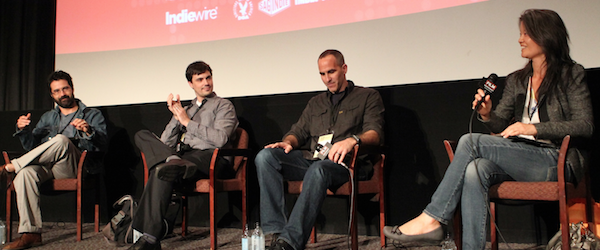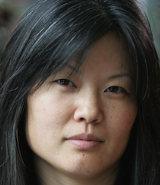GREETINGS FROM THE TRENCHES: How a Successful Producer Developed Her Philosophy

We don’t talk much about developing a philosophy of producing in this business. But I’d argue that a producing philosophy is as important as a smart financing strategy or a strong audience engagement plan.
I came to film because I care deeply about the stories being told in our culture, who is telling them and whose stories get told. After working in the production office for a year, I started producing an indie sci-fi drama called Robot Stories. I was 26, had never worked on set, and to put it kindly, I was very green.
We started principal photography in New York City on September 10, 2001. The second day of our shoot was September 11. No one knew what was happening, but everyone on set was looking to me for answers. What do we do? Do we continue shooting? Do we send the cast and crew home?
When you arrive at the place where you are making a hundred decisions a day, and you are responsible for everyone who is giving their time and talents and money to make this thing happen, it can be a frighteningly lonely place to be. You hope that when you arrive, you have a philosophy to ground you.

And I have found that the moments when I am most lost, without any sign or hint of what is the “right” thing to do, I have no other choice but to follow my instincts. As it turns out, being lost can be a glorious thing.
So in that moment, on set in New York City, on September 11, I learned that my work as a producer starts with taking care of the people who are working for me. It’s not filmmaking by any means necessary. Compassion must come first.
That first lesson grew into one of the main tenets of my producing philosophy: compassion and care for others ultimately means building community. Filmmaking is always an act of community. It can be the community of 50 people on set, or the indie community supporting these labors of love or the community of niche audiences watching these films.
So perhaps like everything else I learned about producing, I developed my producing philosophy by making many, many mistakes. And after some hard lessons learned, and long periods of being lost, my instincts pushed me towards projects and decisions that spoke to the original reasons why I became a producer. I gravitated towards telling stories that would create dialogue. I worked in a way that put community and people first; and I tried to incorporate education and collaboration in everything I did. I defined success for myself as simply being able to work on projects I believe in.
And so it was when I embraced these tenets of my producing philosophy—community, dialogue, education, collaboration—that I found my voice as a producer. As producers, we have incredible talents and skills to make things happen. Not everyone can produce an indie film—and if you can do that, you can do almost anything. So, I did what my heart desired. I curated a museum installation about Chinatowns around the world; I founded a distribution company to bring uncensored Chinese cinema to North America; I created a mentoring program for Asian American media professionals, I produced shoots in Haiti and Beirut while working closely with the local filmmaking communities and film schools; I worked on films that built complex stories around its female protagonists. And the work was done in collaboration with good friends and in partnership with upstanding organizations.
Once I knew where I stood, and what was important to me, my decisions, big and small, became obvious.
Malcolm X said, “If you don’t stand for something, you’ll fall for anything.” So, let’s start a revolution, or at least, a conversation. What is your producing philosophy?
By Karin Chien / Producing Lab mentor, Film Independent Forum panelist